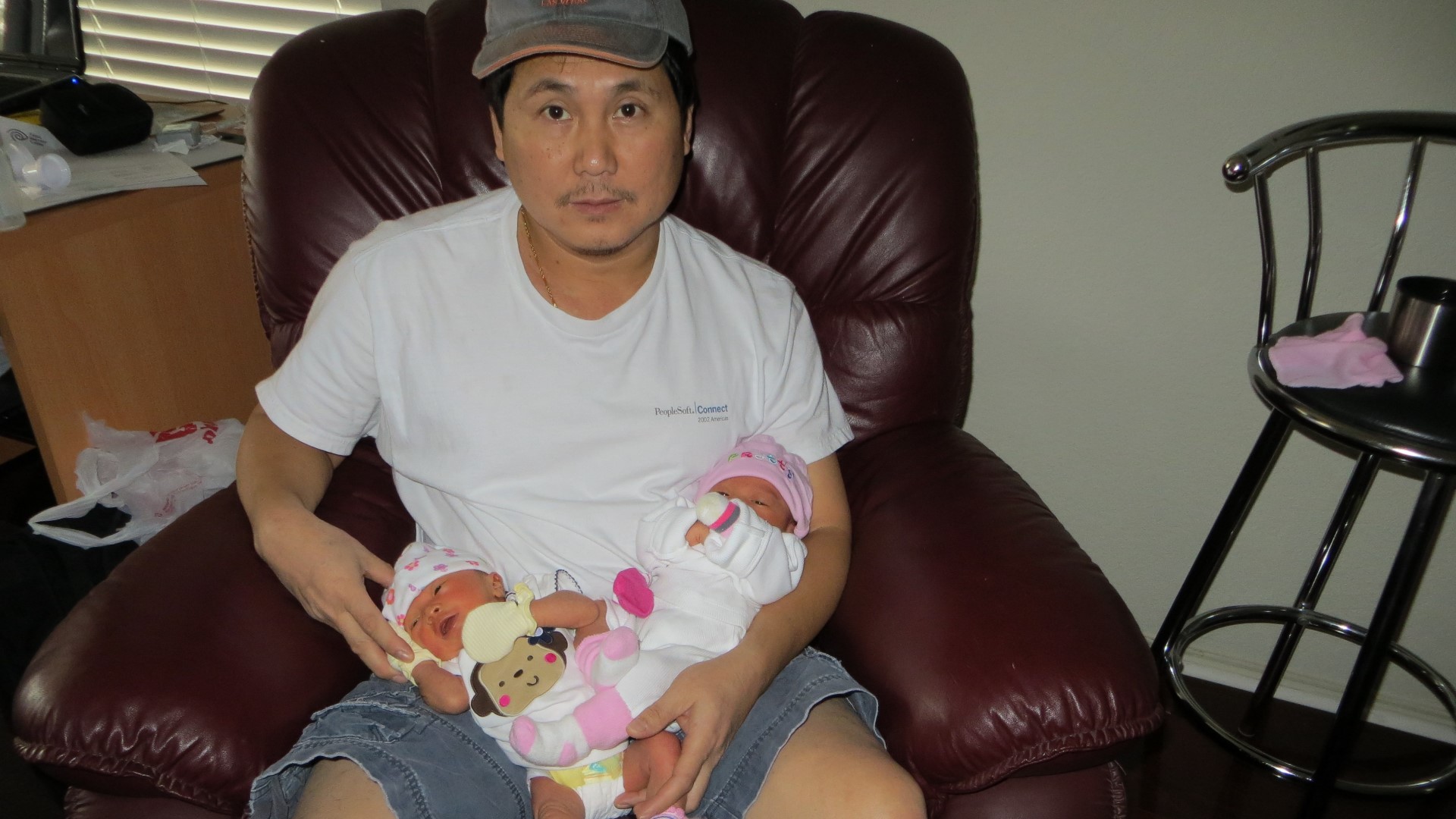AUSTIN, Texas — The COVID-19 pandemic impacted virtually every aspect of our lives, including something most of us probably don't talk much about – organ donations.
COVID-19 halted transplantations and decreased the number of donors, partly because those who tested positive for COVID-19 weren't allowed to donate.
The KVUE Defenders discovered that while the rule changed late last year, there is still a critical shortage of donors.
Brandon Keopilavan is hoping for a living donor.
The Austin husband and father of 10-year-old twin girls was diagnosed with kidney disease in 2018. He said it wasn't until this year that his disease became life-threatening.
"All of a sudden it hit me the last six, seven months...my legs start to [swell] up," Keopilavan said.
Keopilavan's kidneys stopped working properly, causing his body to retain toxic fluids. In November, the 62-year-old started dialysis to help filter the toxins from his blood. He also qualified for a new kidney.
"I want to be around for my family," Keopilavan said.
There was a moment when he thought his wish came true.
His good friend, Steve Strickland, offered to donate his kidney to Keopilavan.
"It was heart-wrenching," Strickland said. "I mean, just watching him and thinking to myself, 'Oh my god, I'm just going to sit here and watch him perish?'"
But during the testing process, Strickland discovered he had kidney issues himself. He doesn't qualify as a donor.
"My creatine levels were too high," Strickland said.
Nevertheless, Keopilavan was moved by the unexpected gesture.
"I didn't ask for a kidney, he just came out and volunteered to help me and I was on my knees crying," Keopilavan said as he become emotional.
As of the end of November, Keopilavan is one of 216 candidates waiting for a new kidney in Austin and one of 8,478 kidney candidates in Texas, according to the Organ Procurement Transplantation Network. See the data here.
Dr. Koushik Shaw is the living donor transplant surgeon for St. David's North Austin Medical Center. It's one of four transplant centers in Austin. The others are Dell Seton Medical Center at UT Austin, Dell Children's Medical Center at Ascension Seton and Ascension Seton Medical Austin.
More patients are on the waitlist for kidneys at St. David's than at the other three Austin centers combined.
Kidneys are the most common organs involved in transplantations. As of Dec. 1, there are 105,493 people waiting for all organs in the U.S. A total of 89,828 of them need a kidney, according to OPTN.
"Most people will wait on that list anywhere from three to seven years, a large majority of which will never get a transplant or live to see a day when they receive an organ," Shaw said.
COVID-19 only made the situation worse for a few months in 2020.
"There was talk about reusing masks, sterilizing them. You know, we didn't know if we had enough gloves, ventilators, things like that. So we were told to stop all surgeries at one point, whether it was kidney transplants or vasectomies. So everything came to a grinding halt," Shaw said.
Months later, the number of transplantations and donors went up.
The latest figures from the OPTN show 1,618 Texans, living and deceased, donated kidneys in 2019. That number dropped in 2020 to 1,546 due to the pandemic. In 2021, it increased to 1,643, even higher than in 2019. So far this year, the number has dropped to 1,311.
Still, Shaw said interest has increased.
"You fast forward now, this is, you know, 2022, we are now seeing a higher baseline number of people contacting our center that are interested in possible kidney donation than we did prior to COVID," Shaw said.
That's good news but still not enough, said Linda Canizales with the Texas Organ Sharing Alliance.
"There is still a shortage, I would say only about, we're still about 44% of Texans are not registered to become organ donors ... and half of that are minorities," Canizales said.
That's why Canizales said there's a big push to raise awareness and dispel myths about organ donation. It's being done by letting the public know that becoming an organ donor means hospital staff will still work hard to save your life in a critical situation. Thanks to technology, kidney transplantations now involve minimally invasive techniques, like laparoscopy.
It's information that Keopilavan hopes will lead him to a donor.
"I just started a family kind of late, you know, like in my 50s," Keopilavan said.
A family that includes 10-year-old twin girls; daughters he hopes to watch grow up.
"...nothing else matters," he said.
If you're interested in becoming a living donor for Keopilavan, visit www.UTCLivingDonor.com.
If you're interested in registering to become a donor after you pass, visit Donate Life Texas. For more information about organ donations, including popular myths, visit the Texas Organ Sharing Alliance.

